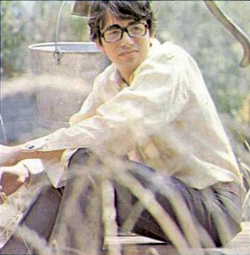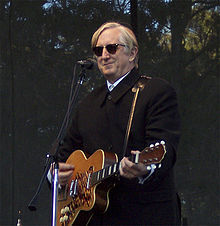Songwriters Struggle in the Digital Age
TWO more musicians have expressed their frustrations with the post-label era of music distribution, which many technologists tell us is the best of all possible worlds.
The first is the estimable eclecticist Van Dyke Parks, who writes in the Daily Beast about “How Songwriters Are Getting Screwed in the Digital Age.” (I know Van Dyke well enough to know that that was not his headline.) He’s writing specifically about the low royalty rates musicians (especially songwriters) make from Spotify and the like, but sees the crisis as part of a larger battle.
There’s less support for all the arts today, and the blade gets duller with every cut in arts funding. It degrades dance, opera, even academia and, significantly, the art of journalism. As a result, in the U.S., public opinion suffers from what we call “infotainment.” That’s a genre of media news that is not informing, entertaining, or remedial. And it’s a direct result of a vacuum of patronage (and by patronage, I don’t mean just Medici-style sponsorship but the willingness of all arts consumers to pay for what they listen to, read, and watch, and for the industry to fairly recompense creators).
The second piece is by producer T-Bone Burnett, known for his work in television (Nashville) and film (the Coen Brothers movies.) His piece is largely about a lawsuit over whether musicians who recorded before 1972 will earn royalties on their work, since national copyright did not exist then. The streaming services and Internet radio are trying to avoid paying anything.
is by producer T-Bone Burnett, known for his work in television (Nashville) and film (the Coen Brothers movies.) His piece is largely about a lawsuit over whether musicians who recorded before 1972 will earn royalties on their work, since national copyright did not exist then. The streaming services and Internet radio are trying to avoid paying anything.
Several lawsuits have been filed over the last year on behalf of artists and copyright owners against Pandora or Sirius XM to rectify this disregard for what legacy artists created. It turns out that recordings made before 1972 are protected by state law and newer recordings are protected by federal law. It’s a distinction that matters to lawyers but not to those who make music for a living — or their fans. And why should it?
Burnett also sees the issue in broader terms: “For the last 20 years we’ve witnessed an assault on the arts by the technology community — especially when it comes to music.”
These issues are central to my book; I get into them in some detail then. And I’ll be writing over the music-streaming fight in the near future.
UPDATE: British folk/punk Billy Bragg and Ed O’Brien of Radiohead have just spoken out about what they describe as YouTube bullying indie labels for their upcoming streaming service. Story here.
Scott Timberg's Blog
- Scott Timberg's profile
- 7 followers



